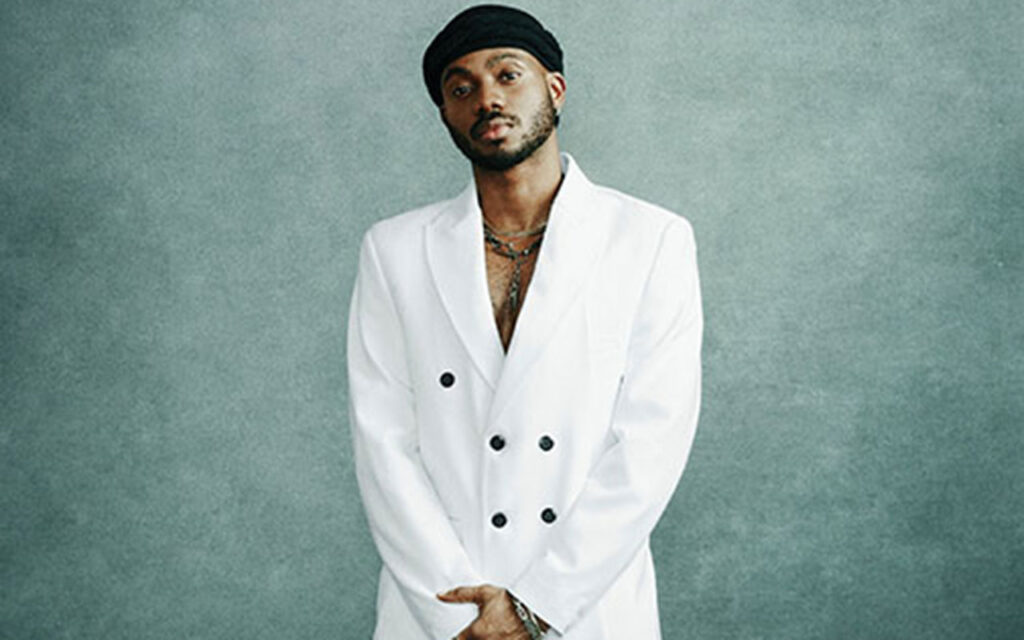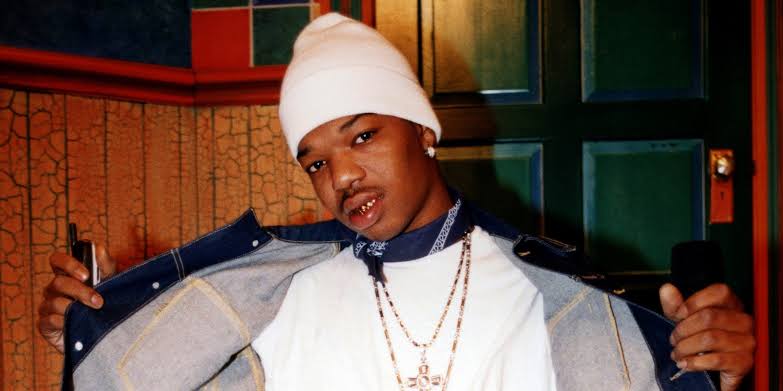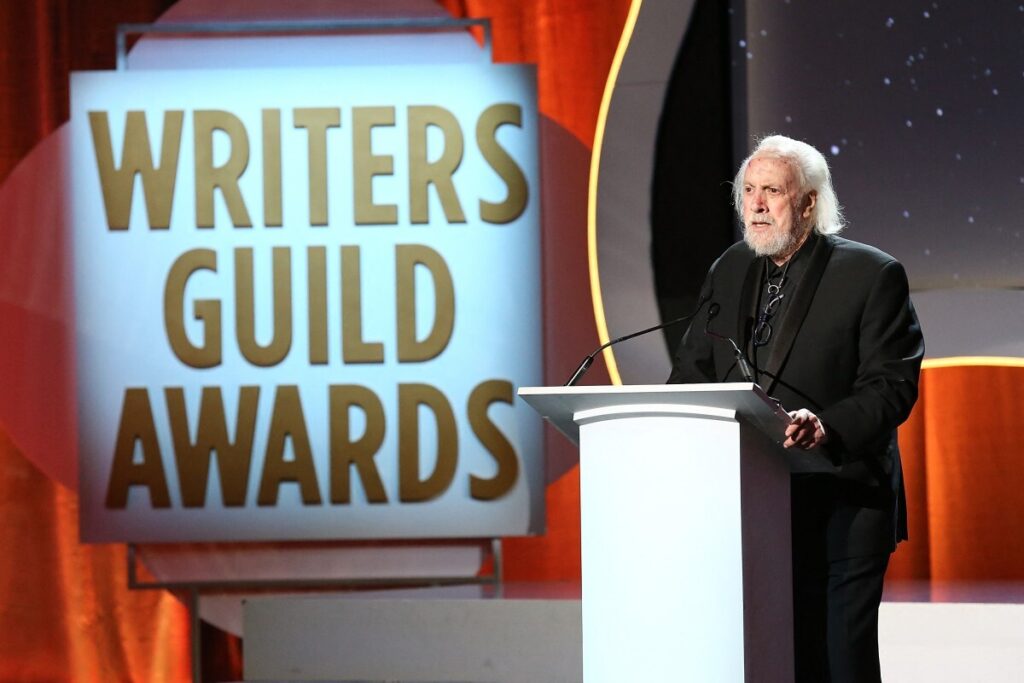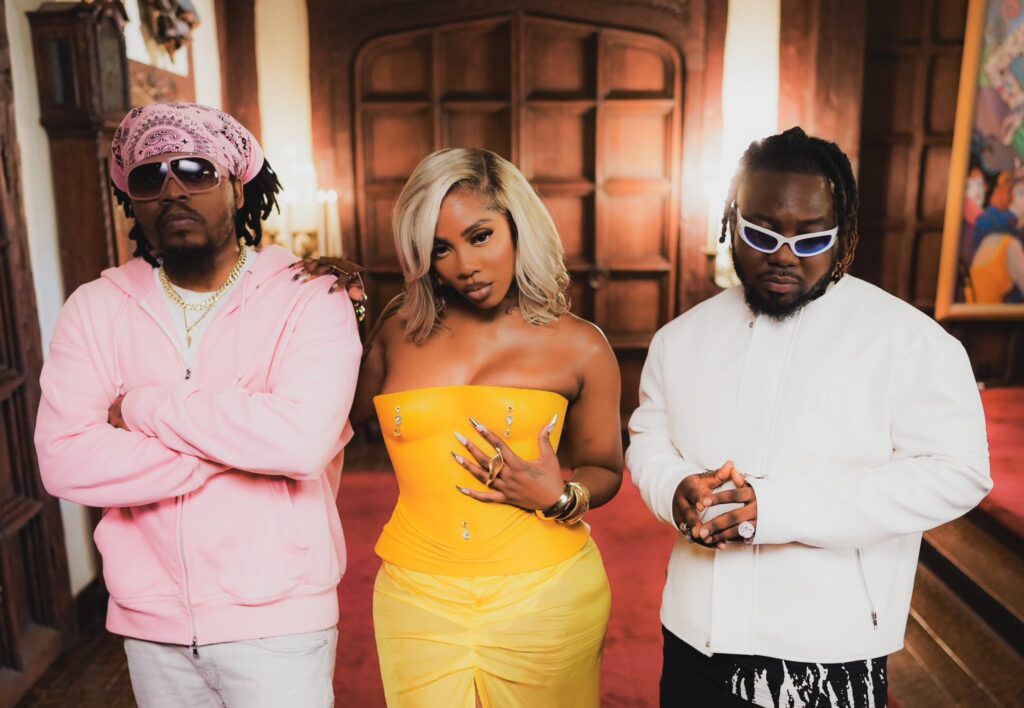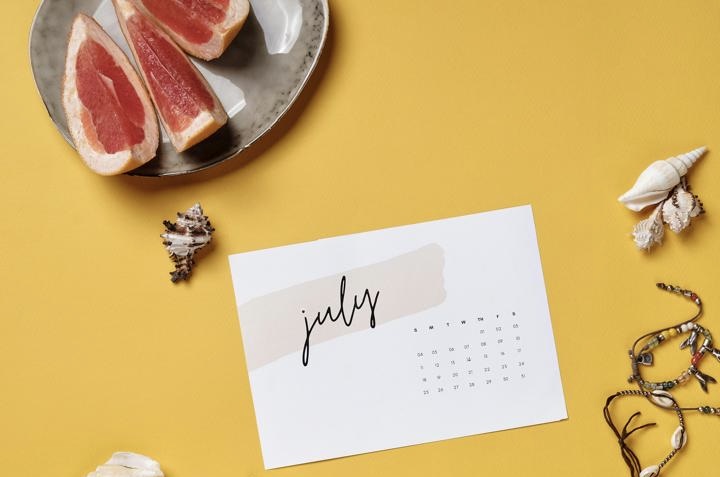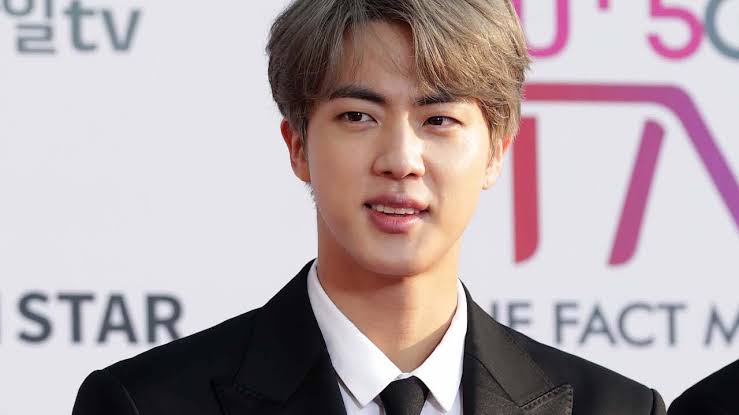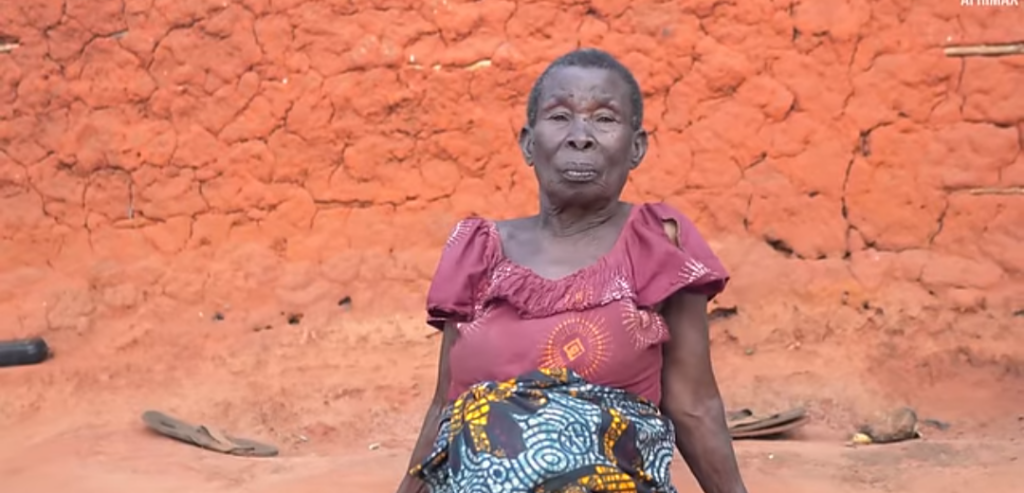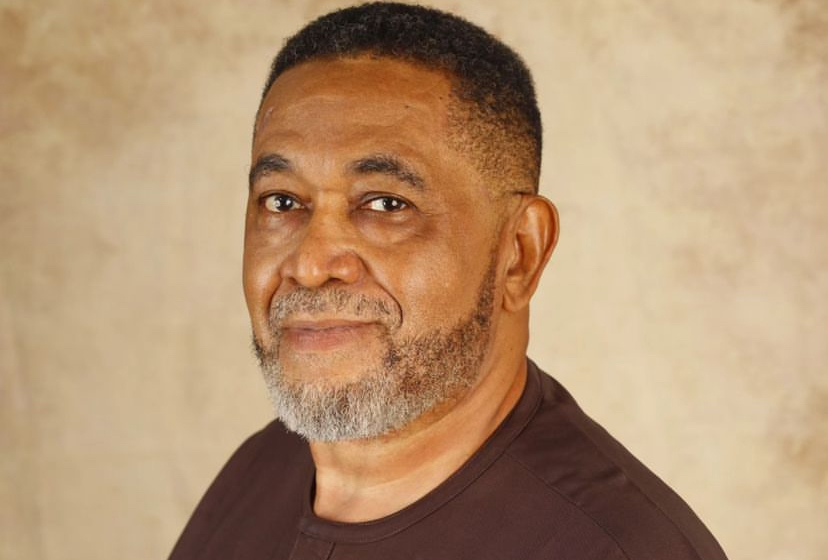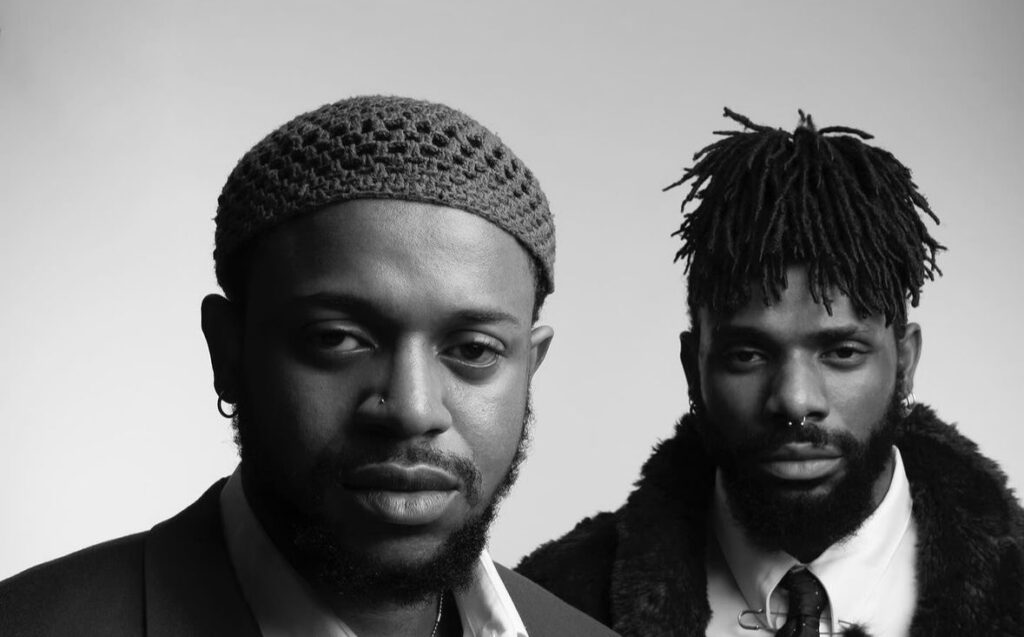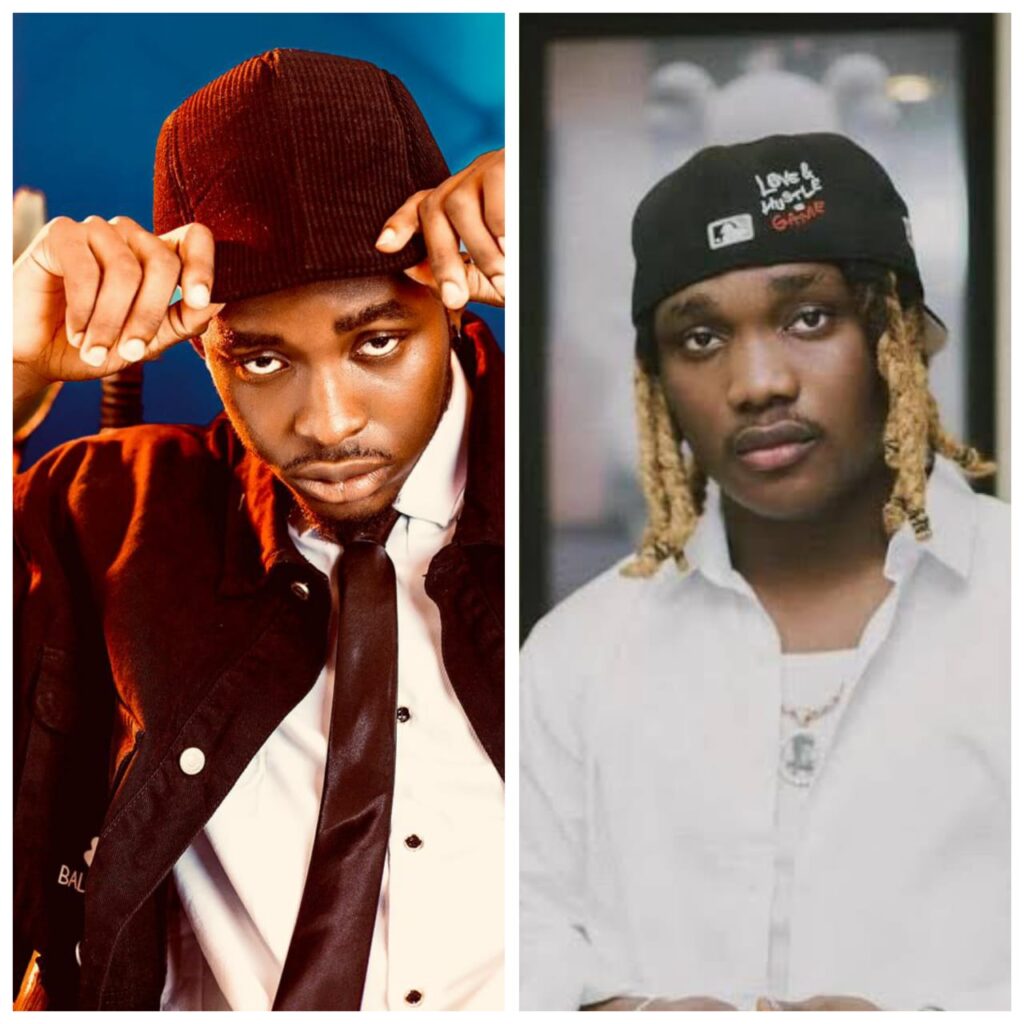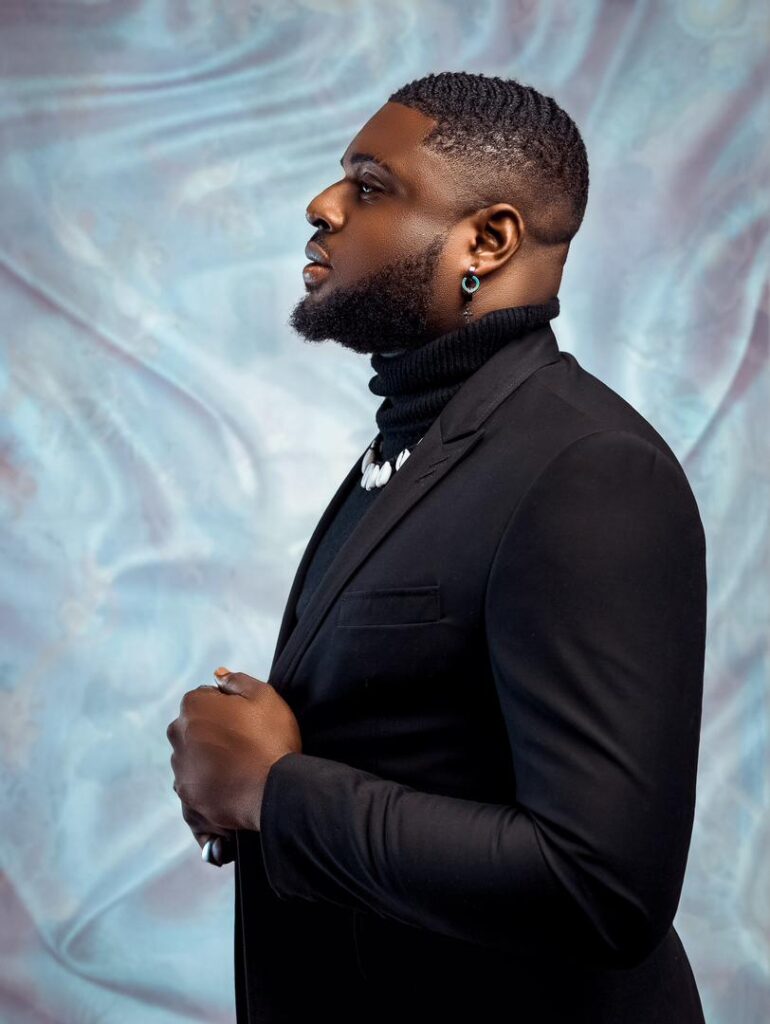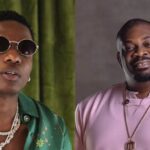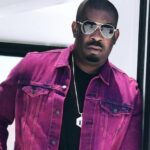 Barely three weeks ago, Korede Bello returned with a two-track release, one of which was the Minding My Business duet with his former label boss, Don Jazzy. If you’re looking for proof of whether the erstwhile Mavin Records star of Godwin, Do Like That and Dorobucci fame still has that star-factor, then that track is all the confirmation you need.
Barely three weeks ago, Korede Bello returned with a two-track release, one of which was the Minding My Business duet with his former label boss, Don Jazzy. If you’re looking for proof of whether the erstwhile Mavin Records star of Godwin, Do Like That and Dorobucci fame still has that star-factor, then that track is all the confirmation you need.
Korede Bello, the ‘mega-superstar’ that bursted through airwaves circa 2014, with that prayerful pop-anthem Godwin carries a unique, gingerly voice that neatly aligns with all of his lyrical storytelling. On his most-recent EP, Beauty & Bliss, the indie singer rehashes the warming tempo and stirring lyricism that has kept his discography filled with gems. Across all eight tracks, he fuses genres, traversing between Amapiano pop and RnB as he shuffles between edgy ecstasy and soothing introspection. It was definitely a captivating return after his first post-Mavins project, Belloved, failed to transport his evergreen talent to new fans back in 2017.
Since the musician’s big break in the early 2010s, being relevant has remained quite easy for Korede Bello. He sits, tucked inside the annals of great singers in Afrobeats’ history. As the industry evolved, so did his music, especially its production and composition. His mental health and cancer awareness advocacy, as well as a youth ambassadorship with the country’s police, continues to give his scandal-free image a generous retouch.
In this week’s Guardian Music, we catch up with the 28-year-old star, delving deeper into his recent collaboration with Don Jazzy, as well as his past projects, especially his anxiety with making more hits after Godwin; as well as his vision of serving a slice of ‘heaven’ with every song he will ever create.
How has life been for you these past few years?
Life has been beautiful and blissful. It’s been an interesting stage of life to be. Being a young adult, being in a stage where you question the nature of existence, purpose and possibilities of the future, it’s a very interesting place to be. Life has been fair to me. Life has been good to me, actually. I’m in my most intentional phase of my creative career.
You just released your new single with Don Jazzy. How do you feel about it?
How I feel about it is in the song itself; it’s a self captioned feeling. I literally spoke about my feelings on the song and it flows from how I feel and how I’ve been feeling about life in general, minding my business, focusing on the work that pays me, just paying attention to what feeds my joy and feeds my bliss. It feels good to also reconnect with my boss and friend. I enjoy making music with him, so making music together and seeing people respond to that, it’s a beautiful feeling as well because we just like to have fun anyways. So, I feel like minding my business is actually a good investment.
What was the experience like reuniting with Don Jazzy on a song again?
We did not reunite because we did not divide. So, I don’t call it reuniting; it’s just a link up. We always link up, but not every time to make music. We could just link up for link up sake. I could go see him and we would just talk about life. It just feels like a regular link up. The only difference right now is that this one is recorded in a song. It started from “Oh, let us just give them something to dance and feel excited by”, and the experience was beautiful. You know, one day, I was scrolling through tik-tok and realised some of our songs that we made together were trending and I remembered that Jazzy and I make beautiful music. On my next album, I’d like to make something with him again. He’s the only person I would feature in the album. So, I wanted to touch base with Don J and just make something joyful and that also communicate our lifestyle just like minding our business and doing what we do.
Your new two-track project is self titled, KoreDay. Tell us about it
Yes, it’s self-titled, KoreDay, but it’s also a mixture of two words, Kore and Day. So, Kore’s Day and Kore’s Day is a nod to my birthday, which is February 29. I thought it would be a really good idea to create a project that reflects my day from beginning to end and also to try to make the project that if my day or my lifetime was codified in one day, what would it look like? So, if someone presses play and they want to know what Kore’s Day was like in the year 2024, when they’re listening 50 years from now, they can just press play and see, oh, it’s such an interesting day. So, it’s a way to codify, you know, a life cycle in one single day. Tell a story about Kore’s Day from my perspective, you know, a dialogue where I have someone asking me questions and I’m answering with, I’m responding with songs. It’s a story about celebrating life, love, experiencing heartbreak, responding to life’s challenges, falling in love again, focusing on what matters most and just looking forward to having a better day. Enjoying the moment, enjoying the day and looking forward to being better another day.
So, can we say all of these things are things that happen in real time?
So that’s where as an artist, you know, there’s a little bit of fiction, a little bit of reality in there to amplify the story. But the core of the story is Kore’s Day. I mean, it’s true that it’s my birthday. It’s true that I look forward to going back to my bed. It’s true that I travel to the past to speak to my inner child as a mental or wellness check. It’s true that nobody knows tomorrow. You know, a lot of the songs are rooted in reality. But for artistic expressions, like if you see the statue of David, for instance, by Michelangelo. Is it real that that’s David? No. But is it also true that that’s David? Yes. It’s David because that’s the statue of David. It was just crafted with rock. So it’s rooted in reality. All art forms are rooted in reality. All the best ones. Anyways, but for me, yes, KoreDay is rooted in authenticity and reality. And it’s also like a birthday gift to myself. So, I want it to be as true as possible. Especially for my inner child.
How would you describe your artistry right now?
I think the answer is just simply experience. The more you experience as an artist, the more the experience finds its way to your art that is just the way of sharing experience. I think I’m just seeing through the lens of experience at this point and trying to communicate as realistically as possible the things that everybody faces from day to day, so, I’m not trying to make music because I have a song to make. I am trying to make music because I have something to say in a song. You know it’s something that I’ve seen or experienced and I want to share so that’s what’s different. I’m just trying to communicate, you know language music is a language of emotions and experience, so from time to time you know as an artist you find your unspoken words or you know feelings pouring into the art and I think that’s what it is sometimes the art makes itself through. You’re just a medium and you don’t know what you’re making until it’s ready but I wanted to make something that you know can be experiential. It’s like a Disney story.
Where do you generate most of your ideas from?
Sometimes, the ideas themselves come to me. Like I said; when you listen to the album it feels like it’s something that always already existed and they just needed me to put it together. So sometimes I don’t like to take credit for generating anything because nobody really generates anything. The generator doesn’t generate electricity, it’s just a medium for converting energy to another form of energy you know, so the generator will not come and say “ah that me i’m the generator of electricity without electricity i’m the generator of electricity without electricity i’m the generator of electricity.”
That’s me. Ultimately, stories are the source of all our ideas. You know someone says I want to build a light bulb. Why is it a story? He was trying to tell a story of he was trying to complete a story so that people can know. Sometimes the stories were even here before we were born, we just connected to them. And I am part of a story that’s been told. Am I the main character? I don’t know yet. But I think what matters is that we are in the position, whether you’re a writer, painter, journalist, whatever, you know, you understand your part in the story and you play your part well. That is a sense of humility, knowing that you’re part of the story, not necessarily the end of the story.
Obviously, you are to some extent in charge of how you tell your story, but the story does not start with you and it doesn’t end with you. I think that’s ultimately the story of Kore’s Day. You know, it’s gonna be someone else’s birthday. And tomorrow, it’s just a new day. You know? Like, life doesn’t end when they stop playing, when you get to the last song on Kore Day. I think that another message in there is that the story doesn’t start with you, it doesn’t end with you, but you have this little part that you get to play in the day, in the story of this lifetime, and make sure that you spend your time well or at least allow time to spend you well.
Tell us about one of your most memorable music making experiences ever?
There are so many memorable experiences, but this particular song I’m watching on the screen right now, Romantic, takes me back to the day that we made this song. Then Jazzy and I just came back. We actually went to church. It was like a harvest program, and, you know, we were invited to come. We were invited to sing Godwin together. It was Don Jazzy’s church.
So, as we were sitting, the prayers were going on and on, and the theme of the day was, you will sing a new song. So, it’s not as if they made this for us. It was the theme of the year that the Holy Spirit had told them to tell the congregation. We, being musicians, we started, me and Jazzy, we said: “We will sing a new song, amen.” By the way, Godwin was just such a stubborn song. Like, we didn’t know where to go from there or what to do right now? Because it’s not like the type of songs I want to be making for the rest of my life and we know God’s hand was there. So we had to go back to God and say, ah, we’ll sing a new song. So we turned it to prayer points, jokingly.
And when we left the church, we went to the studio, and immediately we started creating, just trying different ideas, say we’ll sing a new song, you know. So we’re just with that energy, that desire to make something new, and while Jazzy was just trying different kicks and drums, you know, he doesn’t like this one. He just started to play this particular drum set. I was like, no, what was that? He was about to move on to another thing. I was like, no, eh? I said, no, no, no, I like that. I like what I’m hearing. I like what I’m hearing. At this point, there’s something here. There’s something here. He said, ehn? I said, there’s something here.
So, we started to build around it, and I started to, like, freestyle, literally, like, the verse. But I didn’t have words yet. It was just like that. I just knew something was trying to come outside of me. I don’t know what it was until it came out. It became romantic eventually. So yeah, I wrote the verse, the chorus, and we could just tell that this is such a nice song and we used to play it around the studio. Tiwa came into the studio one day, and she heard it was like, oh, wow, this is such a dope song. I don’t know if I’m telling the story right, but I think we’re about to shoot the video in London, and she was going to be in London at the same time.
She was like, if I’m going to be in London, you know, let’s do a verse so that we’ll just shoot the video together.” And that’s how it literally just happened and I didn’t say “Tiwa, oh, I want to do a song called Romantic,”or I had an idea on my guitar. No, no, it literally was that progression. So it’s beautiful to see how everything played out. I think Tiwa just had Jamil then at the time. So she was out of music for a while. And, you know, this, this came in for us. This came in at that particular time, when she was, you know, when she was about to come back to music. It was spontaneous.
Are there any of your former label colleagues that you are still close to at the moment?
Oh yeah, of course. Like I still talk to everybody. There’s nobody that hasn’t talked to us. We’ve been kind of like, last year, last weekend, Don J and I chat from time to time. Yesterday, I was at Jazzy’s place. Tiwa Savage, we exchange messages from time to time. Yeah, there’s everybody. There’s no bad blood. There’s no bad energy. I’m open to working with them. Actually, I’m working on something with the whole crew again. So that’s something that we can look forward to right? But definitely, I’m looking forward to making some good stuff together again.
What do you look out for before you collaborate with people?
For me, it’s the music, like with Romantic, for instance, it was calling for Tiwa Savage. I just didn’t know it at the time. It was calling for a female perspective on the song. It just so happened that Tiwa was the one that it needed for that moment. And I don’t like to force collaborations. I let the music tell me what it wants. Who do you need on this song? I ask, I don’t ask consciously, but I always listen for what the song needs. What word do you need to complete you? What type of chorus do you need to be, to be balanced, to be perfect? What type of energy? What type of tone? What type of delivery? So what type of artist? The song is what I listen to for what informs the collaboration. That’s why I don’t do too many collaboration because I don’t hear from the song back to tell me what it needs.
Are there any contemporary voices in Afrobeats that you would like to work with?
I don’t know yet until the song tells me, I don’t know yet. So it depends on the song. Anybody and everybody could be a good fit. But if I am going from an egoistic place of “oh, I want to make the song with this person, I want to make the song with that person”, then obviously I want to make the song with everybody because I like everybody. Everybody has something to offer. But it depends on the song. It’s the song that drives the type of collaboration? Is it the type of collaboration? Except we’re doing it strictly for business purposes and that also is a thing. But personally, like, it’s the song.
What is the vision for Korede Bello?
The vision? Oh, that’s a good question. The vision is to be a little bit of heaven on earth, to be a piece of heaven on earth. That’s the vision. So it’s not my vision, I’m just tapping into a divine vision. I think that’s why we’re all here, to make people’s experiences, to make people feel like they’re in heaven. You know? Some people make other people feel like they’re in hell. It’s like a living hell, that’s what we say. But I think we’re here to be hotspots of heaven on earth, regardless of religion, race. It’s when people engage you, interact with you, are they meeting heaven or hell? So that is the vision for me. That’s how I intend to spend my day or my days. That way, I’m always in heaven. Because when you want to be heaven for another person, you’re always going to be heaven. You’re always going to be in heaven. You don’t have to wait until you die to be in heaven. But if you’re creating hell for other people, you’re already in hell. So that’s the vision.

